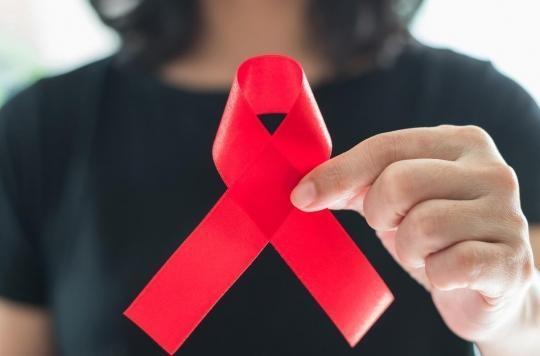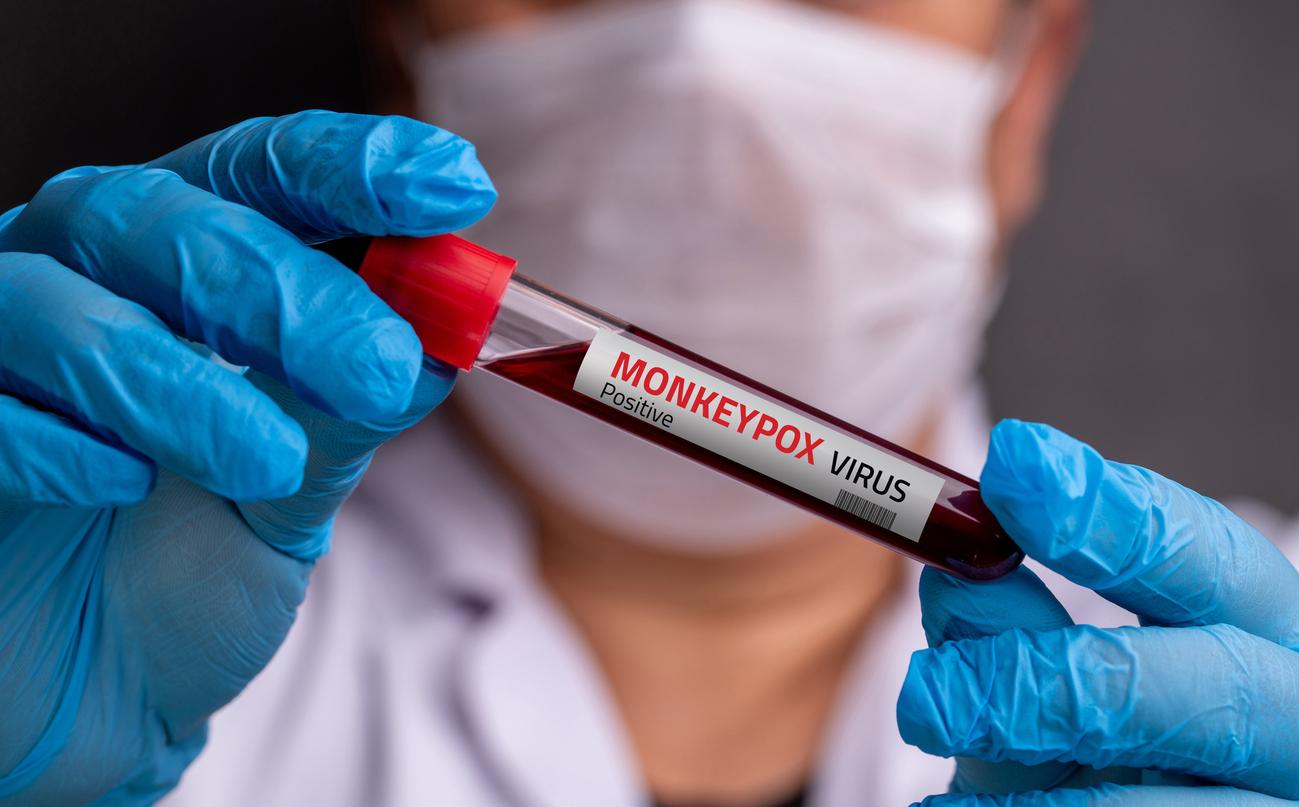For the first time, researchers have understood how HIV infection leads to paralysis of the immune system. But if this discovery ends up leading to an effective treatment, however, it will not be for many years.

- Scientists have discovered the mechanism that allows HIV to shut down the entire immune system
- This work offers a new avenue for a long-term treatment of AIDS.
- 38 million people worldwide are now infected with this virus
Around the world, nearly 38 million people live infected with HIV, according to the latest figures from UNAIDS, the joint United Nations program on HIV/AIDS. Each year, 1.7 million diagnoses fall and in 2018 the disease killed 770,000 people. In France, more than 170,000 people are living with AIDS. Among them, 6,000 discover their HIV status every year. Faced with the scale of this scourge, researchers have been working for decades to try to develop a cure. Today, scientists from a start-up housed at the Institut Pasteur have made an essential discovery. According to the results of their study published in Journal of Clinical Investigations, they would have understood how an HIV infection leads to a paralysis of the immune system. A world first, welcomes Diaccurate, the Parisian biotech behind these discoveries. However, if this discovery leads to an effective treatment, it will not be for many years.
“It’s not HIV that kills the sick, but the fact that their immune system becomes immunocompromised, so they die of an infection or cancer”recalls Professor Jacques Thèze, co-founder and CEO of diaccurate.
Previously, it was unknown how the virus attacked white blood cells. “When the person was carrying the virus, it was not known why the CD4+ T cells became dysfunctional when less than 0.5% of them were infected with the diseasespecifies Philippe Pouletty, president of Diaccurate. In fact, a fragment of HIV sticks to this enzyme. This infernal couple comes to attack the white blood cells”, he continues. On the strength of these results, the scientists now want to develop a monolocal antibody capable of “directly attacking” this enzyme.
The effectiveness of preventive treatment
Unfortunately, the treatment is not for tomorrow. “The first clinical trials on humans could take place in 18 months. Be careful however, the possible development of a drug can take between 7 and 9 years”, warn the researchers. If this treatment proves effective, it could also be applied to certain cancers. “Restoring the total function of the immune system makes it possible to increase the effectiveness of current treatments, or even to stop certain heavy treatments such as chemotherapy”explain the scientists.
Currently, HIV is mainly treated with triple therapy, a combination of three antiviral drugs. If the patient does not take treatment, many diseases can arise and, as the researchers of this study explained, take on serious proportions.
While the fight against AIDS still suffers from numerous regional disparities, it is making progress. According to a UNAIDS report published this summer, since 2010 mortality has indeed decreased by 33%. In question, more screening in developed countries and better prevention, in particular thanks to the pre-exposure prophylaxis. Better known as PrEP, this drug is taken before and after possible exposure to HIV in order to prevent transmission of the virus. It is specifically aimed at people who are not affected by HIV, but who present a risk of contamination.
Available since 2016 in France, its effectiveness was tested for the first time in France as part of a study completed in July 2019 with 3,000 people followed for nearly 3 years. According to the results of the trial, PrEP would be effective in almost 100% of cases.
Poor knowledge of the disease by young people
Better yet, American scientists have recently raised hopes of a vaccine. The results of their tests, published in the journal Immunity, are promising. Working on rabbits, they succeeded in developing broadly neutralizing antibodies capable of targeting at least two critical sites on the virus. According to the study, this vaccine could offer robust protection against the ever-evolving HIV.
Despite these promises, there remains the obstacle of received ideas about the disease, even among us. In France, a survey published on 1er December brought to light persistent misconceptions among young people, who tend to give up using condoms. According to this survey, one out of two high school or university students declares that they do not use it every time they have sex. More than half of them (54%) do not systematically get tested when they change partners and two out of ten believe that HIV is easily cured with current treatments. Added to this is poor knowledge of the mode of transmission of the virus. While 19% think that HIV can be transmitted by mosquito bites, others believe the fake news that circulates on the web, like the case of bananas infected with AIDS, for example.

.














